New Scientist covers the latest developments in science and technology that will impact your world. New Scientist employs and commissions the best writers in their fields from all over the world. Our editorial team provide cutting-edge news, award-winning features and reports, written in concise and clear language that puts discoveries and advances in the context of everyday life today and in the future.
Elsewhere on New Scientist
Fading memory • New treatments are paving the way to a world without Alzheimer’s
New Scientist
The birthplace of star-like planets
Will mpox be a global pandemic? • A new variant of mpox is surging in Central Africa, raising concerns about how quickly it could spread, reports Michael Le Page
Quantum trick can cool things despite using nothing at all
Strange metal-rich stars may come from stellar implosions
DNA computer solves chess and sudoku puzzles
Blow for dark matter search as biggest hunt yet finds nothing
Why do covid cases rise in summer? • Flu and other respiratory viruses seem to barely exist outside of winter, so how come covid-19 is different, asks Carissa Wong
We might finally know what made the mysterious Wow! signal
Symptoms of long covid can differ depending on age
The surprising science of the Neolithic • A monument built between 3600 and 3800 BC reveals knowledge of geology and physics
Blob of jelly can play Pong thanks to a basic memory
Most climate policies aren’t effective • Only a slim minority of climate policies have led to a significant reduction in carbon emissions, with most being too specifically targeted to make a big difference, finds Chris Stokel-Walker
Bacteria destroy antibiotic resistance genes in wastewater
SpaceX tweaks Starlink to save radio astronomy from satellites
Quantum effect seen at large scale • A weird quantum phenomenon called delocalisation has been measured for a glass bead, helping reveal where the boundary lies between quantum and classical physics, finds Alex Wilkins
Evidence mounts that eating lots of meat can raise your risk of type 2 diabetes
Cocaine was used in Europe earlier than we thought
The Atlantic’s record cooling • After more than a year of record-high global sea temperatures, part of the Atlantic is cooling fast. Why it is happening isn’t certain, but it could affect weather around the world, says James Dinneen
Antimatter version of an atomic nucleus is the heaviest yet
AI could help us keep outdated computer programs working
Turtle power • A video of a turtle with a straw up its nose changed attitudes to plastic pollution around the world. But we must do more, says Vanessa Bézy
No planet B • Bad habit I am one of millions of vapers in the UK, but growing evidence of the impact these e-cigarettes have on the environment means it may be time to quit, says Graham Lawton
Nest level
The moral of the story • How do we work out right from wrong? A gripping anthropological account argues imagination and differing senses of the world are key, says Simon Ings
Going deeper • Despite some hype, a new nature series about ocean life delivers on the visuals, finds Josh Bell
New Scientist recommends
The sci-fi column • High stakes For an undercover operative, Sadie Smith takes unnecessary risks as she infiltrates an eco-activist group. Why? And where do the Neanderthals fit into this gripping climate-fiction novel? Emily H. Wilson loved finding out
Your letters
Overcoming dementia • A tranche of new drugs finally points the way to treating – and perhaps even eliminating – Alzheimer’s disease, reports Graham Lawton
The truth about digital propaganda • How worried should we be...

 Jan 04 2025
Jan 04 2025
 Dec 28 2024
Dec 28 2024
 Dec 14 2024
Dec 14 2024
 Dec 07 2024
Dec 07 2024
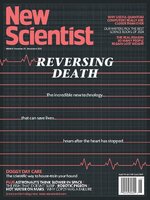 Nov 30 2024
Nov 30 2024
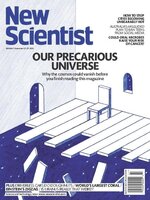 Nov 23 2024
Nov 23 2024
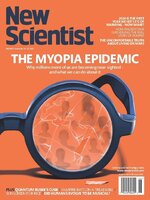 Nov 16 2024
Nov 16 2024
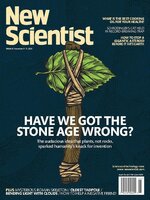 Nov 09 2024
Nov 09 2024
 Nov 02 2024
Nov 02 2024
 Oct 26 2024
Oct 26 2024
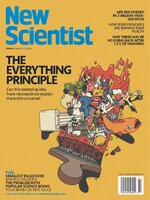 Oct 19 2024
Oct 19 2024
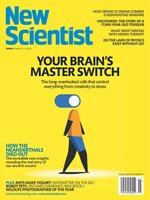 Oct 12 2024
Oct 12 2024
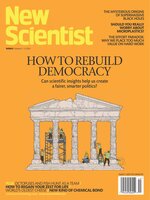 Oct 05 2024
Oct 05 2024
 Sep 28 2024
Sep 28 2024
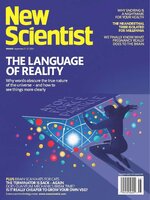 Sep 21 2024
Sep 21 2024
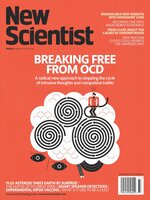 Sep 14 2024
Sep 14 2024
 Sep 07 2024
Sep 07 2024
 Aug 31 2024
Aug 31 2024
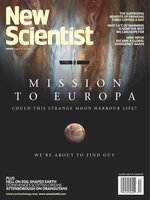 Aug 24 2024
Aug 24 2024
 Aug 17 2024
Aug 17 2024
 Aug 10 2024
Aug 10 2024
 Aug 03 2024
Aug 03 2024
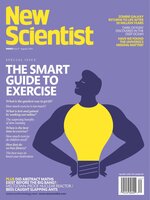 Jul 27 2024
Jul 27 2024
 Jul 20 2024
Jul 20 2024
